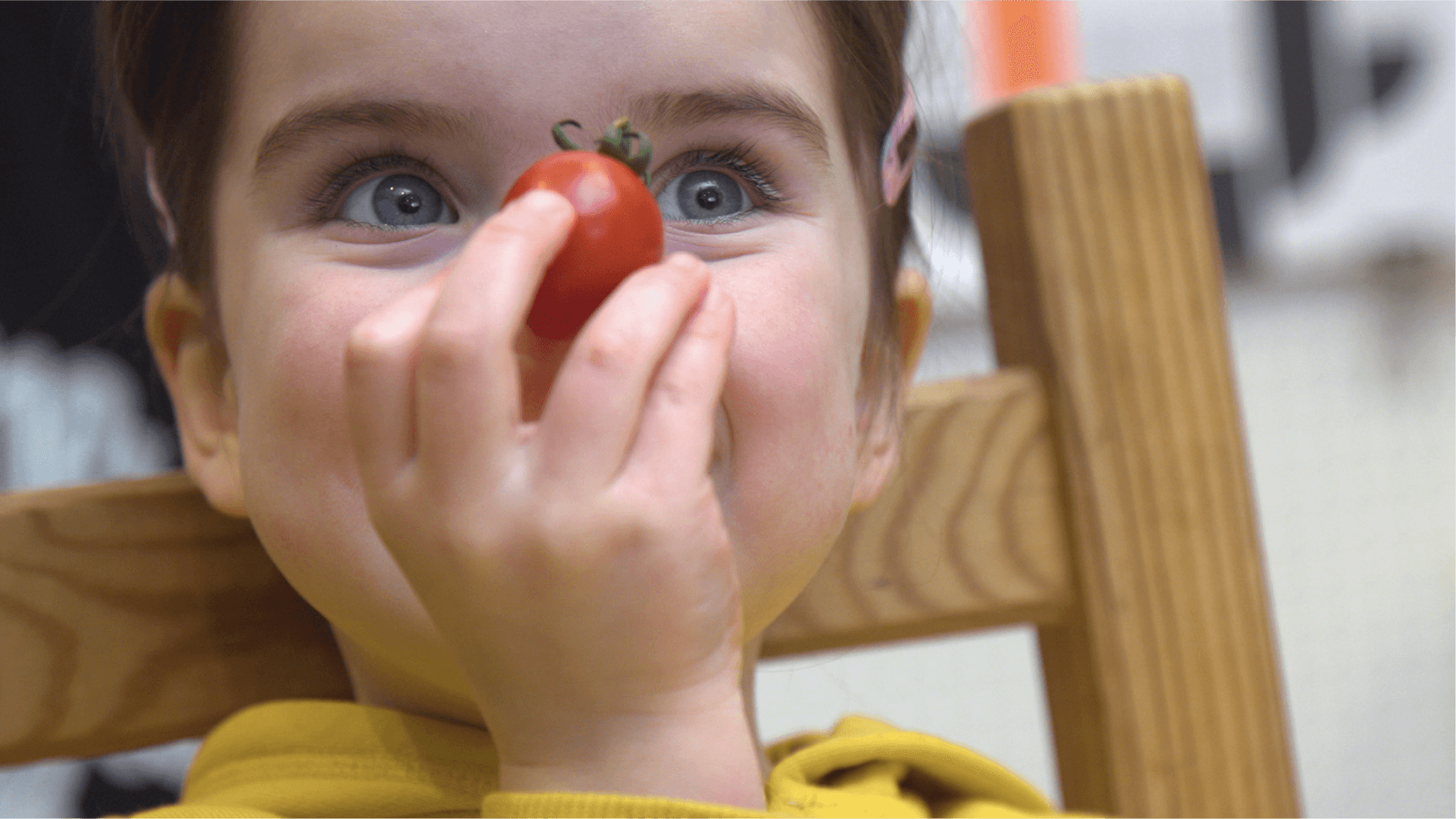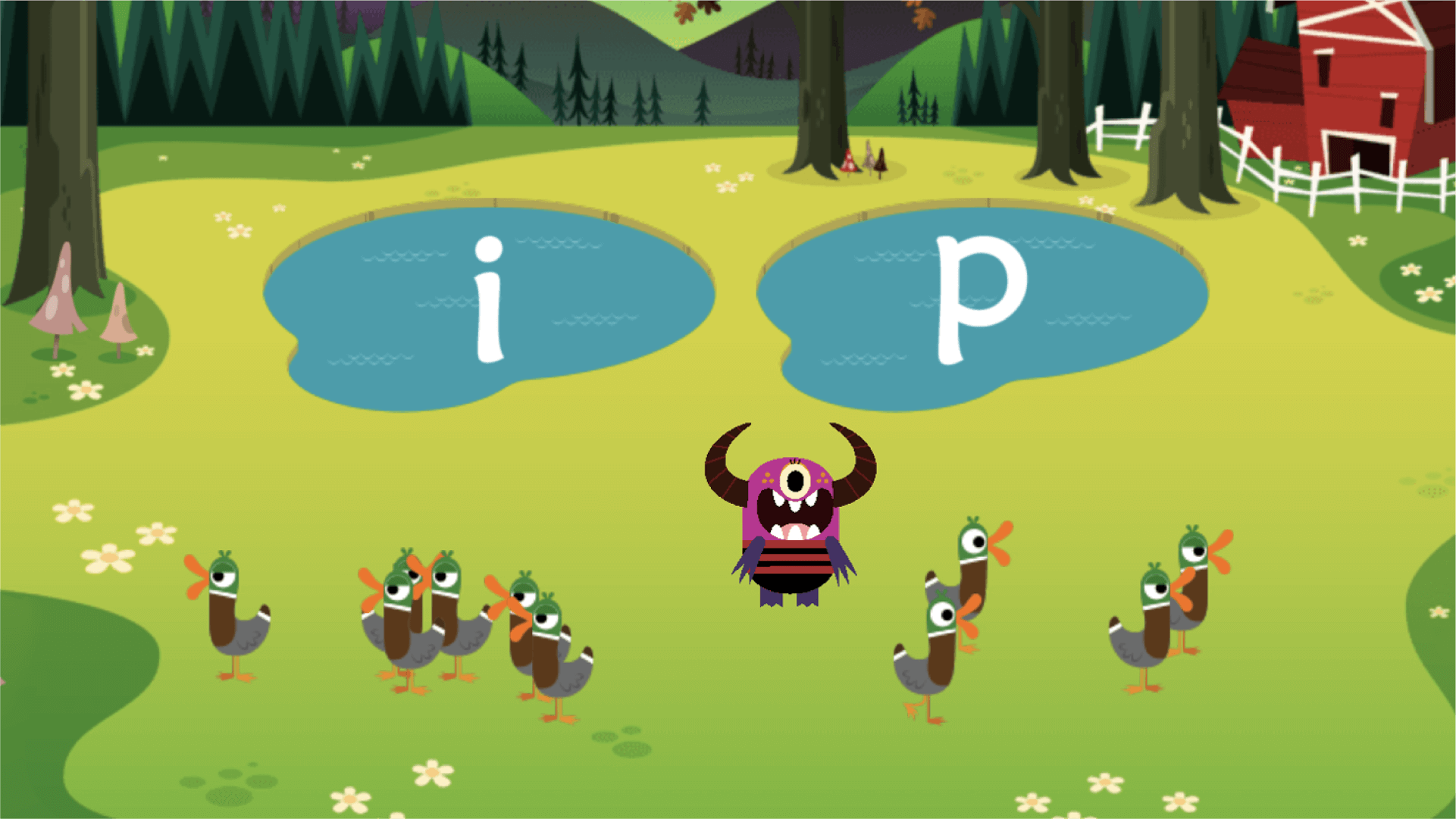At Teach Your Monster, we know that as a parent or teacher, you want to give your child the best possible start in life. We understand that life can be busy and challenging, but we're here to help! Encouraging your child's imagination is a great way to foster their creativity and help them develop important skills that will serve them well throughout their life.
So, where do you start? Here are some fun and creative activities that you can do with your child to help stimulate their imagination:

Arts and Crafts
Arts and crafts are a great way to encourage your child's imagination. You can provide your child with a variety of materials (such as paint, paper, glue, and markers) and let them create whatever they want. Give your child a theme or a prompt to help guide their creativity. You could ask your child to create a drawing or painting of their favourite monster from Teach Your Monster, or to make a collage using different colours and textures. There is so much that they can do! Have a look at Pinterest for inspiration!
Outdoor Activities
Spending time outside is another great way to encourage your child's imagination. You can take your child on a nature walk and encourage them to explore their surroundings. What can they see? What does a tree feel like? Can they describe it to you? You can also provide your child with outdoor toys. Grab some balls, frisbees and jump ropes, and let them come up with their own games to play.
Storytelling
Storytelling is a powerful tool for encouraging your child's imagination. Read them stories and encourage them to ask questions and make connections between the story and their own experiences. You can also ask your child to tell you a story, either by themselves or with your help. This can be a great way to spark your child's creativity and help them develop their storytelling skills. Have a look at our game Teach Your Monster Reading For Fun too. There are over 70 books that your child can read, this will also help develop their storytelling! According to the National Literacy Trust, children who read for fun are more likely to have greater vocabulary and writing skills, which help to develop their imagination.
Pretend Play
Pretend play is another great way to encourage your child's imagination. Give them dress-up clothes, puppets, or other props and let them create their own stories and scenarios. This can be a great way to help your child develop their social skills and their ability to think creatively!
Encouraging your child's imagination is an important part of helping them develop into happy and healthy grown ups. By providing your child with opportunities to be creative and to think outside the box, you can help them develop the skills to use everyday.
Good luck, and happy learning!
From Teach Your Monster HQ
You want your child to grow up healthy, strong, and smart, right? Well, there is one simple way you can help in your child's development and it can make a massive impact. Their diet! One of the best ways to ensure that they get all the vital nutrients they need is by incorporating fruits and vegetables into their meals. This can be pretty tough when dealing with picky eaters so what fruit and vegetables can help our kids?

According to the American Academy of Pediatrics, "children who eat a healthy and balanced diet with plenty of fruits and vegetables are more likely to have a healthy weight, be physically active, have good mental health, and avoid chronic diseases later in life". There are a lot of children who don't consume enough fruit and veg. This means it can lead to deficiencies in essential vitamins and minerals that are crucial for their development.
Let’s look at three vegetables and three fruit that can help with your child's development:
Best Vegetables for Children's Development
Broccoli
Broccoli is a great vegetable for children because it is packed with nutrients that are essential for their development. Rich in vitamin C, this helps boost the immune system, and vitamin K, which is necessary for blood clotting! Broccoli is also a great source of fibre too. This helps with digestion, and it contains antioxidants that can help prevent chronic diseases later in life. Wow! Discover some yummy kid-friendly meals here that have broccoli in too.
Sweet Potatoes
Sweet potatoes are another great vegetable for children. They are rich in beta-carotene (which is essential for healthy eyesight!) and they are also a good source of vitamin C and potassium. They have a low glycemic index, which means they won't cause a nasty rapid spike in blood sugar levels. There are so many recipes you can make with sweet potatoes, have a look here.
Spinach
Here at Teach Your Monster HQ, we can’t get enough of spinach! It is an excellent vegetable for children because it is rich in iron, which is essential for healthy blood cells. It is also a good source of vitamin K, which is necessary for bone health, and it contains antioxidants that can help prevent chronic diseases later in life.
A study published in the Journal of Nutrition found that children who consume more fruits and vegetables have better academic performance. By incorporating spinach into your child's diet, you can help improve their cognitive development and support their academic success. Here are some recipes to try!
Best Fruits for Children's Development
Blueberries
Packed with antioxidants, blueberries can help prevent chronic diseases later in life. They are also a good source of vitamin C and they contain fibre too.
A study published in the British Journal of Nutrition found that children who consume more fruits and vegetables have a lower risk of developing type 2 diabetes. Try adding some blueberries to your kid’s diet, you can even try to make these together.
Oranges
Oranges are another great fruit for children. Not only are they rich in vitamin C and fibre, they also contain folate, which is essential for healthy cell growth and development.
A study published in the Journal of the American Dietetic Association found that children who consume more fruits and vegetables have a lower risk of developing heart disease later in life. Try these fruity kids recipes here.
Bananas
Bananas are an excellent fruit for children because they are rich in potassium, which is essential for healthy heart function. We love this banana bread recipe that you can make too!
Fruits and vegetables are essential for a balanced diet for children. Adding a banana or some spinach into their meal can help ensure that they get the essential nutrients they need for their development. So, the next time you plan your child's meal, make sure to include a rainbow of fruits and vegetables to support their growth and development.
Do you have a fussy or picky eater? Teach Your Monster Adventurous Eating can help! Children can use all their senses to explore fruit and vegetables in our game and make them a little braver next time they try different foods. It’s free on our website so, why not give it a go?
Good luck, and have fun exploring fruit and vegetables together!
From Teach Your Monster HQ
Phonics education is all about teaching children the sounds that letters make, and how to combine those sounds to form words. It's a crucial foundation for building strong literacy skills. It has been shown to improve reading accuracy, fluency, comprehension, and overall enjoyment of reading. Have a look at the National Literacy Trust and what they have to say here!
Why is phonics education so important? Well, research has shown that children who learn phonics in their early years are more likely to become confident readers. They're better able to decode and understand unfamiliar words, which allows them to read more complex texts. This helps them gain a deeper understanding of the world around them.

That's where Teach Your Monster To Read comes in! This game is specifically designed to make learning phonics fun and engaging for kids. With colourful monsters, exciting games, and a variety of levels that gradually increase in difficulty, children can progress at their own pace. This helps them feel a sense of accomplishment as they learn and not become overwhelmed. Additionally, the game is designed to be fun and engaging, so children are motivated to continue playing and learning!
The best part? Teach Your Monster To Read is completely FREE to play online! So, whether you're a parent, teacher, or homeschooler, you can easily incorporate this tool into your child's learning routine. Whatever device you have, Teach Your Monster To Read works on a variety of devices and platforms.
How else can you promote early literacy skills? Imaginative play, arts and crafts, and outdoor learning activities are all great ways to help children develop their creativity. It also helps with problem-solving skills, social-emotional development, language, and communication skills, which are vital for reading and writing.
That's why Teach Your Monster encourages you to explore a variety of tools and resources to help your child become a confident and successful reader. Whether it's playing with educational toys and games, engaging in outdoor activities, or simply reading together as a family, there are so many fun and effective ways to promote early literacy skills and overall development.
If you're looking for a way to help your child improve their reading skills and develop a love of learning, check out Teach Your Monster To Read. With the right tools and resources, you can help your child become a confident and successful reader while promoting their overall development and well-being.
Good luck, and happy learning!
From Teach Your Monster HQ
Teaching a child about money is an important responsibility as a parent and a teacher. It’s never too early to start teaching your child the value of money. Things like how to save and how to spend wisely are brilliant skills to have early on in life. By teaching them at a young age, you can help them develop good financial habits that will stay with them throughout their lives. As a parent, you might wonder why it's important to teach your child about money at such a young age. After all, they are just starting their journey in life, and there will be plenty of time to learn about finances later on, right? Wrong.
Studies have shown that children who learn about money management at a young age are more likely to make better financial decisions later in life. They are less likely to fall into debt or struggle financially as adults. By teaching your child about money early on, you are setting them up for financial success in the future.

Let’s have a look at ways we can help children be more money savvy:
Play Money Games
Playing money games is a fun and interactive way to teach your child about the value of money. You can play games like “Grocery Store,” where your child can buy and sell items using play money. You can also create a “Piggy Bank” game to teach them the concept of saving. Encourage them to save their money and count it periodically to show them how their savings are growing. Remember to give them praise when they are adding the numbers correctly or, help them when they make a mistake.
Set Up a Savings Jar
Setting up a savings jar is an excellent way to teach your child the importance of saving money. Get a clear jar or container and label it “Savings” or maybe even their name so they can see how much they’ve managed to save! Encourage your child to put their spare change in the jar and watch it grow over time. You can also set a goal for the savings jar, such as saving for a toy they want or a family trip! Don’t have a jar at home? Then make your own together! Here are a few ideas for you to do together.
Play Shopkeeper
Playing shopkeeper is an excellent way to teach your child about money and math. Set up a pretend shop and price items, then have your child use play money to buy them. You can switch roles and have them be the shopkeeper, too. This imaginative play helps your child learn how to count money, make change, and understand the value of different coins and bills.
Allowance and Chores
Giving your child an allowance can be an effective way of teaching them about money management. Set up a weekly allowance and give them tasks to complete, such as cleaning their room or doing their homework. This activity teaches them the importance of hard work and earning money. Encourage them to save a portion of their allowance and spend the rest on things they want. Talk to them about what they may want to spend it on and how close they are to getting it!
There are also books that can help your kid start their money journey, check them out here. Did you know that our game, Teach Your Monster Number Skills, can also help? Building number confidence means they are able to recognise the numbers and help with counting, addition and subtraction.
Good luck, and happy learning!
From Teach Your Monster HQ



